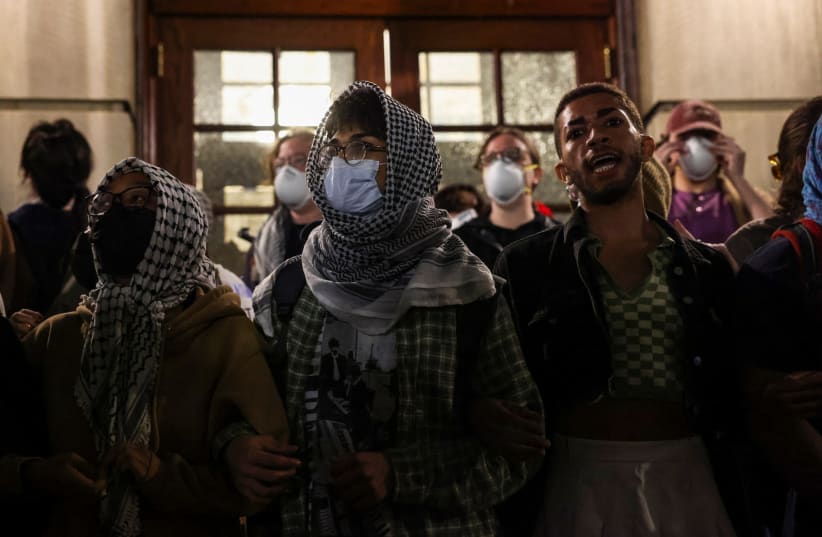An unprecedented wave of antisemitism has been rising in the United States, including violent protests, tent encampments, harassment of Jewish and Israeli students, and aggressive anti-Israel and anti-Jewish messages.
Those who monitored Qatar's covert activity in the US and its massive financial influx saw it as a natural continuation of promoting extremist agendas under the guise of supporting science and students.
"Qatar had ideological goals, primarily to promote the ideology of the Muslim Brotherhood," explained Dr. Charles Asher Small, CEO of the Institute for the Study of Global Antisemitism (ISGAP), and organization Vice Chairman David Harris, in a New York Post report.
According to Small and Harris, "Qatar leveraged its immense resources wisely to enhance its image, such as hosting the FIFA World Cup, acquiring iconic sports teams in the West, establishing a global airline, broadcasting Al Jazeera, and integrating into higher education. It hired an army of lobbyists, lawyers, and top-notch public relations experts in Washington and other capitals to promote the Qatari brand, penetrate decision-making circles, and intimidate anyone who might question its hidden motives."
Asher Small and Harris cited two recent cases illustrating Qatar's modus operandi.
"In late 2022, Qatar was caught red-handed attempting to bribe several European parliamentarians, including a vice president, and earlier this year, Senator Bob Menendez of New Jersey was accused of accepting bribes from Qatar," they noted.
In recent months, the Institute for the Study of Antisemitism published a series of studies and findings regarding Qatari funding in US universities. They highlighted its use to influence the agenda through hundreds of joint research projects, extensive personal data collection on students, significant universities operating campuses in Doha, and more.
The main research, published in November 2023, revealed Qatar as the primary funder beyond the sea of American universities.
Qatar's University funding
The report - Networks of Hate - revealed that the Qatari SWF foundation transferred funds to various institutions and organizations in the US and Europe, including top universities, totaling between $500 billion and a trillion US dollars.
The current research was published following previous studies by the institute. It found that Qatar was the largest foreign donor to American universities and that money transferred by foreign countries like Qatar directly influenced the rise of antisemitism and anti-democratic positions and activities. Qatar focused its donations on a limited number of leading American universities to increase its influence.
Unsupervised money transfer methods included collaboration between American universities and foreign companies through joint projects. For example, according to the report, the Spanish energy company Iberdrola and its American branch Avangrid were tools for transferring money from Qatar to joint projects with American universities.
Another method was through conferences and other initiatives via bodies affiliated with Qatar, such as the organization Wise, which presented on its website as a "dynamic platform promoting innovation in education through a diverse portfolio of initiatives in policy, research, leadership, and specialization programs." According to the research, such initiatives also received sponsorship from other entities, such as Standard Bank.
Another arm was registered patents created in American universities through Qatar's National Priorities Research Program (NPRP), established in 1995. This program funded projects and research, leading to patent registrations in various universities.
A follow-up study published weeks ago found that Qatar directly transferred $1.95 billion to Cornell University between 2001 and 2023, making Qatar the largest direct foreign donor to a university, 30 times more than the next largest, Hong Kong, which donated only $69 million since 1995. The report also included findings that Qatar donated an additional $7.9 billion to the Sidra Hospital in Doha, partly operated by Cornell and a vital component of the Weill Cornell Medical School - Qatar.
Asher Small and Harris called on the US to reign in Qatar, saying, "Qatar's wealth fueled a double game. It had ideological goals, primarily to promote the ideology of the Muslim Brotherhood. Washington must begin enforcing existing laws regarding foreign donations to American universities. Any donation over $250,000 had to be reported to the US government. They needed to be reported and monitored so they testified to their true intentions, not just the declared ones."

